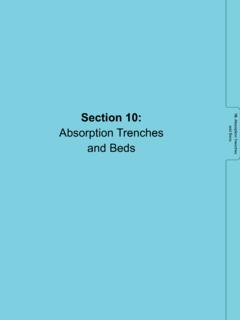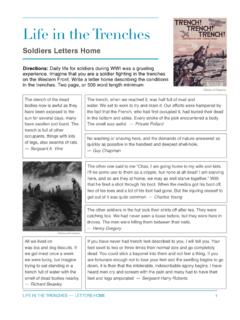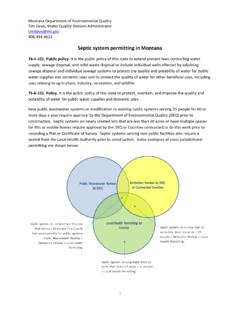Transcription of In the Trenches: A First World War Diary - Not Even Past
1 In the trenches : A First World War Diary By Pierre Minault Translated by Sylvain Minault Edited by Gail Minault Edited for Not Even Past by Mark Sheaves Originally published on Not Even Past < > Department of History, The University of Texas at Austin September 22-November 16, 2014 Not Even Past 2 In the trenches Pierre Minault s Diary of the First World War Not Even Past is marking the centennial of the outbreak of the First World War with a very special publication. Our colleague, Gail Minault, a distinguished professor of the history of India, has given us her grandfather s Diary , a near daily record of his experiences in the trenches in France. Pierre Minault made his First Diary entry on this very day, September 22, one hundred years ago, in 1914.
2 We will be posting each of his entries exactly one hundred years after he wrote them. You will be able to follow Pierre s progress and read his thoughtful and moving personal observations of life on the front as day follows day. Sylvain Minault originally translated the Diary from French. Gail Minault edited this translation and added the following introduction. We are extremely grateful to her for sharing her grandfather s Diary with all of us. Introduction By Gail Minault This year we commemorate the outbreak of World War I, which began in August 1914, with all the powers of Europe declaring war on each other in a domino effect born of alliances and ententes. Reading the history of the war, one becomes aware of the carnage, the stalemate, the sacrifice of an entire generation of young men to great power politics.
3 In August of 1914, none of that was apparent. In fact, there was a certain insouciance in the air, and a sense that it would be a short war. Austrians were going to make quick work of Serbia, the Germans thought they would be in Paris in a few weeks. The French looked forward to winning back Alsace-Lorraine and marching into Berlin by Christmas. Such optimism seems unimaginable in hindsight. Winston Churchill, in a prescient statement made a few months after he became a Member of Parliament in 1901, noted that: I have frequently been astonished to hear with what composure and how glibly Members, and even Ministers, talk of a European war. He went on to say that in the past, European wars had been fought by small regular armies of professional soldiers, but in the future, when mighty populations are impelled on each other, a European war could only end in the ruin of the vanquished and the scarcely less fatal commercial dislocation and exhaustion of the conqueror.
4 He warned that: The wars of peoples will be 3 more terrible than those of kings. 1 Churchill had fought in the Boer War, a colonial war unlike most those fought against poorly armed native populations. The Boer settlers were Europeans and had comparable arms to their British foes, and that war had been bloodier and less conclusive than the British had anticipated. Churchill s warning was unheeded at the time. At the Admiralty in 1914, Churchill realized that this war would be neither short, nor easy. The Germans smashed through Belgium in the opening month of the war, but then were turned back from their drive toward Paris in the battle of the Marne. By October 1914, the war settled into the trenches of northern France, with artillery duels that chewed up horses and men like so much raw meat, and destroyed villages and crops in the fields.
5 French troops in Argonne (Biblioth que nationale de France) Among the soldiers was my grandfather, Pierre Paul Antoine Minault, 26 years old, the father of two, a Sergeant in the 43rd French Colonial Infantry. He kept a pocket Diary that described his experiences. He was educated, sensitive, and articulate, with a great appreciation for the beauty of the French countryside, and great sorrow at the devastation caused by the war. Pierre wrote reassuringly to his wife, Dora, who was English, living in England on Martin s Farm, a small property that they had rented near Grately, Hampshire. 1 Cited in Martin Gilbert, The First World War: A Complete History (NY: Henry Holt, 1994), p.
6 3. 4 There they were raising their two sons: my father, Paul born in France then aged five, and his younger brother, Sylvain born in England who was two when Pierre was called to war. During a break in the fighting in mid-October, he sent her a post card. The picture on the reverse is of Bournemouth Beach, a place they had enjoyed together, taking the boys there to play in the sand, and which he remembered fondly: My dearest little wife: 24 Oct. 1914 Lacking all other paper, I must send one of these postcards, which I have kept preciously so far. We have moved back from the front trenches at last, and have now had two days rest, which has seemed to us like heaven.
7 I for one feel a lot better for it. We shall soon move on again northward, I believe, where a good deal of fighting is going on. Do you know that since Sept. 22, I have received nothing whatever as I wonder if you ever receive my letters. I send one every 3 or 4 days. How I wish to know how you are, and my 2 boys. Take care of yourself, darling, and keep good hope. Our sufferings are soon forgotten when we get a little rest and good living. A thousand kisses from your loving husband. There are many personal memoirs of that war, and my grandfather s is an example of the genre that is, perhaps, in no way exceptional.
8 And yet his pocket Diary , written in French and translated here into English, helps humanize the experience of the war, the fear and the sound of guns, along with the tedium, the mud, the rumors, the occasional decent meal, or cigarette, or shot of brandy. Such personal documents by ordinary people provide the raw materials for the writing of history. My grandfather was just a solder trying to do his job, hoping to stay alive to return home to his family, like so many participants in wars before and since. 5 Pierre Minault (courtesy of Gail Minault) September 22, 1914 We do not know where we are going We leave Montrouge [a suburb of Paris] at 9 o clock in the morning, and arrive at the Gare de Lyon* at noon. The crowd of Parisians is generous and friendly.
9 The knapsack seems heavy to begin with, holding two days worth of food. We do not know where we are going. The train travels relatively rapidly until Laroche, where we drink a bowl of hot soup. 6 Reservists at Gare de L est, Paris, 1914 In the evening, I have to intervene in a compartment where a man who is totally drunk threatens his comrades with his knife; finally he calms down and goes to sleep. At one o clock in the morning, we arrive in Dijon. The night has become very cold. We disembark and march across town to a different station. There, hot coffee awaits us, but after drinking it, we have to wait in the open for three or three and a half hours before our departure. There was a captured German bus there, and a tent with nine wounded Germans, badly shot up by our 75s,** and quite a few of our sick men, evacuated from the front because of the cold weather of the last few days.
10 We leave again towards the North and arrive at daybreak at Is-sur-Tille. We scatter in the surroundings looking for breakfast; we eat and drink coffee, and I get to wash myself, which refreshes me considerably. * one of several railroad stations in Paris **A reference to the famed 75 mm French cannon, a field piece which was superior to the German 77 mm gun in range and accuracy. September 23, 1914 Oh, the hazards of war! Oh, the hazards of war! After having traveled sixteen hours to reach here with our 7 300 men, we get back on the train direction Paris. This redeployment towards the French left wing appears rather general, judging by the number of troop trains leaving in that direction.* First trains of mobilization (Biblioth que nationale de France) * After its defeat at the Battle of the Marne, the German army retreated and tried to swing around the French left wing hoping to prevent French and British armies from joining.







